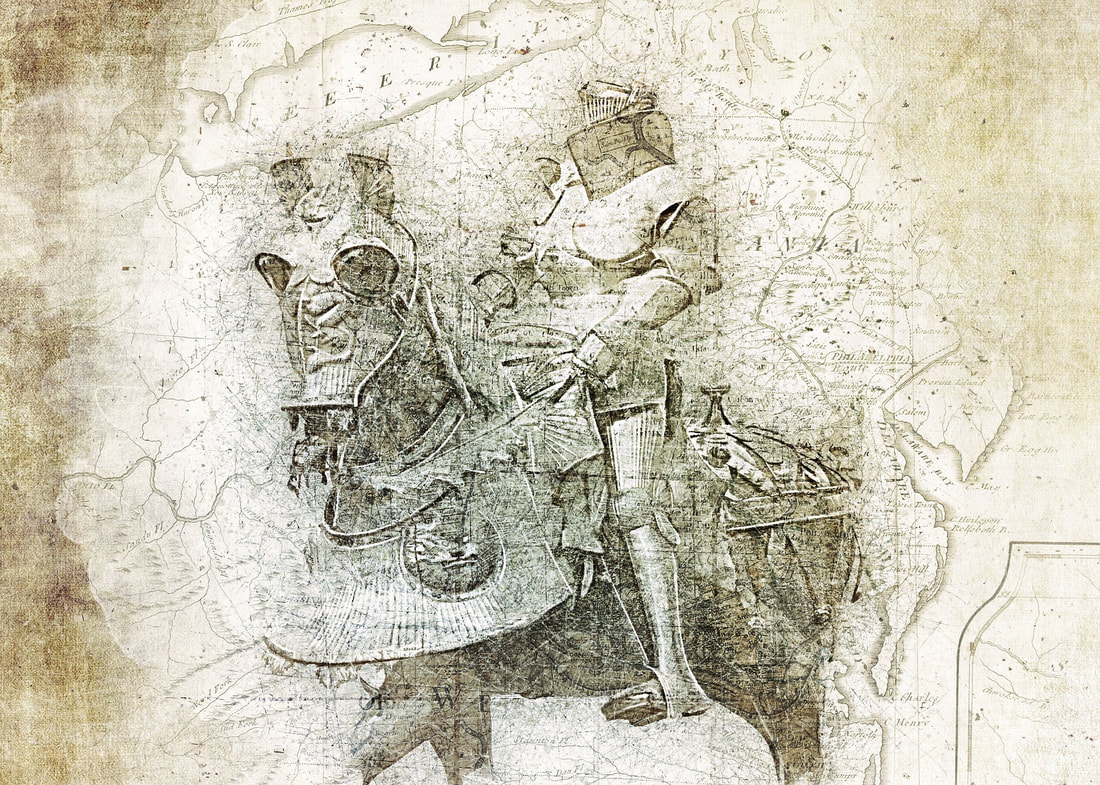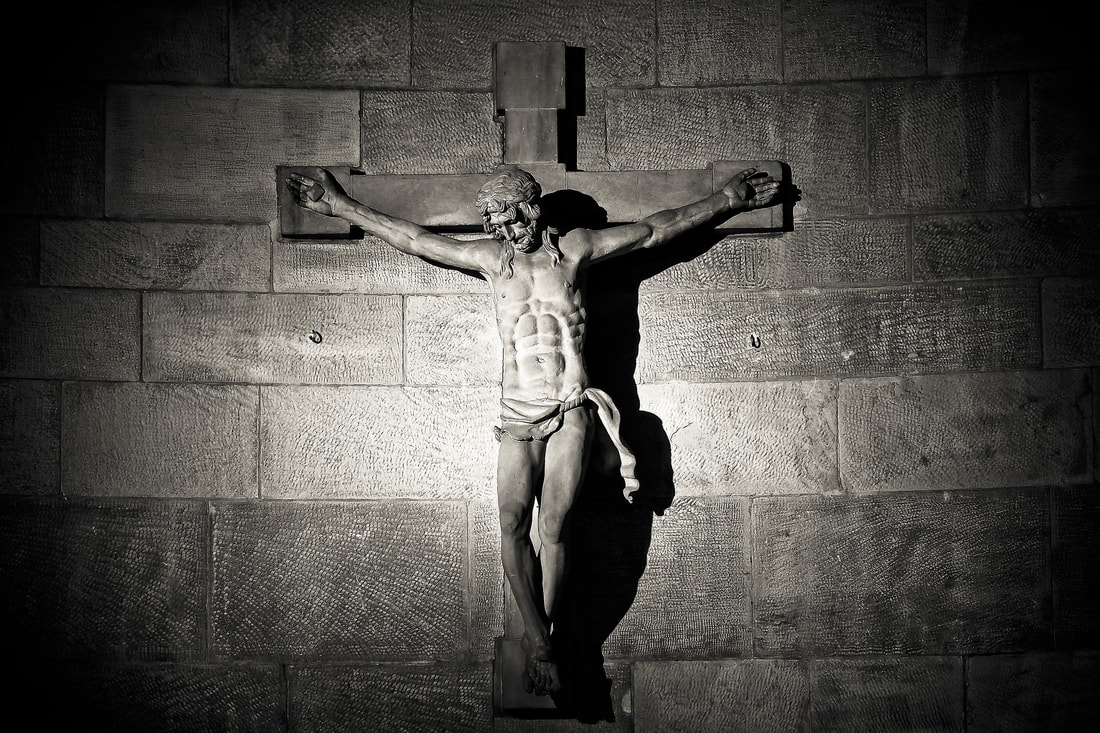|
I remember when it “clicked” for me and I started enjoying baseball. This happened pretty recently, just last year. Up until that point, I was mostly bored watching baseball and couldn’t see beyond what seemed like the silliness of a grown man trying to hit a ball with a wooden stick. A couple priest friends of mine started taking me to Indian’s, wait...no, uhm...Guardian’s, I mean...the uh, Guardindian’s...okay, hold it, let's go with the, uhm, the Cleveland Baseball Team games, and I started listening to a podcast and watching some Jomboy breakdowns. I forget which game it was, but somewhere early in the 2022 season, I was at a ballgame and I felt the tension amp up, the mind games between the pitcher and batter clarified, the runner on first added pressure, the now-no-more shift in place added its own factor, and the team effort that is baseball revealed itself. My baseball sensibility went from “oh, hotdogs and a nice day with friends at a ballpark” to “oh, this is intense!” It didn’t happen overnight. It took time and I’m thankful for my buddies’ willingness to field my very stupid questions with passion and patience. These experiences help me see the chess game of baseball and a bit more of the game within the game. It didn’t hurt that the Guardians (Indians) had a rockstar season. It was heartbreaking to watch the weather in cahoots with MLB and the Yankee’s market base work to end our run. There’s always next year! Maybe you feel sad for me that it took this long to get into baseball. Maybe you’re sad for me that I’m “wasting” my time with baseball. Either way, I think there’s lessons in this story for us about evangelization.
We do not usually “get into” something without experience, insight, and the help of others. This is true for baseball and it is especially true for Catholicism. Getting to the ballpark, watching the start of the game, experiencing the ups and downs with the crowd, trying to figure out what Slider is and why Ketchup never wins (always bet on Mustard), and overhearing what is still mostly baseball-gibberish of my friends, Patches and KJ, all worked together to help me appreciate and learn to enjoy baseball. My Catholicism followed a similar pattern. My family introduced me to the Church. I ended up not practicing my faith much, I was a maybe-CEO (Christmas and Easter Only) for a little bit. Then, at the end of high school, a friend, who, for the sake of anonymity I will call “Rick Turkey,” invited me to a youth group event. I accepted the challenge and, upon arrival, felt like I entered a land of strange music and weirdos. But, the Christian “gibberish” - like the baseball gibberish – ended up moving my heart and I opened my life up in prayer to Jesus, and the rest is history. I entered RCIA in order to receive Confirmation and had more questions answered to help turn the Catholic “gibberish” into an understandable language. I gained more insights and experiences while attending Mass and reading my Bible. It was a whirlwind of a conversion. But, to my surprise, and perhaps to the surprise of those who knew me at the time, I really enjoyed my faith and got hooked on the truth, goodness, and beauty of Catholicism. Everyone needs a Patches, KJ, and Rick Turkey in their life. We all start out not really “getting” stuff and our knowledge grows over time when people patiently walk with us. Experiences help open up new questions and confirm what we’ve come to know already. It’s a continuous cycle of maturation with any passion in our lives. Whether you’re a baseball fan or not, take a moment to think about something you are passionate about. How did your passion start? Who taught you about cars, crafts, cooking, or cattle? When did you experience that hobby or passion for the first time? What opened your eyes in such a way that you wanted to dig deeper into that aspect of your life? Odds are you’ll discover in the story of your passions some experiences, insights, and the help of others. Now ponder this: I had a Rick Turkey get me back into my faith, and I had a Patches and KJ get me into baseball. What makes you think you can’t be a Patches, KJ, or Rick for someone else when it comes to faith. “But...but...I don’t know enough. I’m not holy enough. I’m not...” Well, Patches doesn’t know everything about baseball. KJ doesn’t have the game figured out. And, I’m pretty sure Rick wasn’t a canonized saint when Monsieur Turkey got me to a youth group event at a church. If you love Jesus and love your faith, then you’re ready to share it with others. You don’t need to be a “professional” any more than I needed KJ to work in the back office of the Guardians in order to teach me about baseball; KJ does not work for the Guards, KJ simply likes baseball, that’s all it took. Too often we think “I’m not the one” to evangelize, and make all sorts of excuses. But I think that humility only qualifies you more. People don’t want experts and finished products bringing them to Jesus. They want friends and disciples who know they need a Savior and who aren’t done growing. That is, hopefully, you! What do you call it when a pirate updates his/her iPhone? An iPATCH...(and, that’s when the readership of Fr. Jacob’s Hatchery hit rock bottom).
In the Gospel of Mark Jesus offers a parable in relation to fasting that involves patchwork. In Mark 2:15, we see Jesus sitting at table with “tax collectors and sinners” after Levi’s call. Apparently, self-righteous fuddy-duddies got invites, because the ever-watchful Pharisees keep an eye on Jesus’ and his apostles’ caloric intake throughout the festivities; who doesn’t love nosy neighbors?! Then some of John the Baptist’s disciples and Pharisees approach Jesus and ask him, “Why do John’s disciples and the disciples of the Pharisees fast, but your disciples do not fast” (Mark 2:18)? We can reasonably assume that the day of Levi’s feast landed on a day set apart for fasting by the Pharisees & JBap’s disciples. This was a religious custom picked up by the Pharisees that gained a lot of ground in the first century, and it eventually became a public display of one’s seriousness concerning the religious law. For Jesus, who preached in synagogues and who worked miraculous signs, to not fast would have been rather shocking. We can forgive the Pharisees et al. for their puzzlement: How can someone who isn’t taking the law seriously – in their mind’s understanding of what it means to take the law seriously – present himself as a holy rabbi let alone the Messiah? Jesus responds with a few parable-metaphors, but the patches story strikes me. After describing himself in terms of the bridegroom delighting in a wedding banquet with his wedding party, Jesus spins a cautionary yarn about needlework: “No one sews a piece of unshrunk cloth on an old garment; if he does, the patch tears away from it, the new from the old, and a worse tear is made” (Mark 2:21). Wow! Right? Just, wow. Wait...what? Is it okay if I’m honest for a moment? Are you seated? (Please tell me you’re not driving and reading!) Recently, when I read this, I was confused about what a patch had to do with fasting. I was corn-fused, as they say (which is a step above “confused” but a notch below “flabbergasted”). Why did Jesus bring up this insight about crafts and cloths and patches when asked about fasts? ASIDE: When you come across a passage or section of Scripture that corn-fuses you, remember what the apostles did when they scratched their heads in wonder. “And when he was alone, those who were about him with the Twelve asked him concerning the parables” (Mark 4:10). Those closest to Jesus asked him (we would call that prayer today), “What in the world are you talking about?” when they didn’t “get” it. Jesus liked that, because it meant (1) they listened and (2) they trusted him enough to ask. Mark goes on to tell us about Jesus’ desire to share the meaning of his words with us: “privately to his own disciples he explained everything” (Mark 4:34b). When you’re not sure what is going on in a Scripture passage or section, pray. Take time to sit with the word of God. Ponder how the images, story line, place, characters, etc. intertwine with other parts of the Bible. How does that section fit into those before and after? Do you have a study Bible with notes and references to other parts of the Bible? If so, use those notes and look up those references. You will be amazed at the great fruit given when we do not rush God’s word but truly give our time and heart over to Him in His word. The image in that short verse – Mark 2:21 – speaks about an attempt to fix a tear in a cloth. A “wound” in a garment took place and the owner wants to “heal” that hurt. When we place that insight about the image alongside fasting, we begin to catch Jesus’ point, I think. When fasting becomes simply an externalized practice that, of itself, signifies to the practitioner their own righteousness, then it attempts to “heal” a “wound” with a new patch on an old cloth. Put another way, fasting – the unshrunk (new) cloth patch – is good and helpful, but when applied in the wrong way it will make the “wound” worse. Throughout the Scriptures, fasting represented acts of humility and repentance. The Pharisees seem to take the fast and place it like a badge of pride over their torn garment. Thus, Jesus warns them about their fasting. Instead of drawing them to inner healing and freedom, their fast makes them prideful; the very problem they want to fix is getting worse, pride. The point Jesus makes, this warning about pride in our devotional life, can help us today. Jesus does not tell the Pharisees that his disciples will never fast or shouldn’t fast. The opposite is true, Jesus states that his disciples will fast when he departs from them. These religious practices can open us up to the healing presence of the Trinity. But we must keep our eyes on Jesus while fasting or praying other devotions. Our prayer life isn’t meant for show and we don’t need to prove anything to God. When we live our life in communion with the Trinity, the saving love of Jesus gives us new hearts and fills us with his Holy Spirit (Mark 2:22). If we find that our prayer life and devotions lead to a self-righteous attitude that cramps our compassion towards people we regard as (and who very well may be) “sinners” - you know, the people Jesus had no problem loving, defending, saving, and dining with, those people who are sinners – then we need a “heart check.” We might be putting a new patch on an old garment that needs renewing inside-out. Better to hit the Pause Button on a devotional practice and reevaluate our attitude and mindset, bringing ourselves before the tender mercy of Jesus, then go on making the wound in our heart worse by our efforts to “fix” it. Google lists “Who am I?” at the top of its most searched questions with the word “who” in it (“Who escaped from Alcatraz?” ranks number eight). People spend countless hours listening to motivational speakers and many dollars on self-discovery retreats, seeking an answer to this foundational question: Who am I? In our day, the topic of identity can trigger heated debates and upend a casual conversation. People can place their identity in their work, their love(s), hobbies, habits, and even the concerts they’ve attended. Do these people or things really provide an adequate anchor for our identity?
To root our identity – the heart and core of our identity – in family history, work, hobbies, or our pet ownership (“I’m a dog person” or “I’m a goat person”) courts danger. What happens when the family goes through a season of disruption? What happens when the job doesn’t work out? What happens when you can’t do the hobby you love or your favorite band breaks up? If we ground and root our lives in these passing things, they do not last and they often limit the horizon of our personality. Of course, this is a blog by a Catholic priest, so you knew a transition to Jesus would happen eventually. Buckle up: this is that moment. Jesus did not ground his identity in his family’s approval, work, accomplishments or “failures.” Family: “When his family heard it, they went out to restrain him [Jesus], for people were saying, ‘He has gone out of his mind’” (Mark 3:21). (Jesus didn’t stop his ministry though) Work: “He came to his hometown and began to teach...they were astounded and said, […] ‘is not this the carpenter’s son.’ […] And they took offense at him” (Matthew 13:54-55, 57). Accomplishments: “The Son can do nothing on his own, but only what he sees the Fatherdoing” (John 5:19) “Failures”: (After he’s betrayed by Judas, denied by Peter, beaten, deserted by many of his disciples, crucified and at the point of death with everything seemingly lost, Jesus makes this prayer) “Father, into your hands I commend my spirit” (Luke 23:46). When some of his family thought he was out of his mind, he kept moving forward. When people dismissed him because he was no longer doing carpentry work as they thought he should, he kept moving forward. When he succeeded, he didn’t get lost in self-congratulations but kept his heart on the Father’s will. When he had absolutely nothing left and it looked like his public ministry was a colossal failure, he commended all of it to his heavenly Father in trust. And, in that relationship with his heavenly Father we find the true anchor of Jesus’ identity, an anchor that granted him inner strength to endure persecution and remain in hope throughout his life and even in dying. With Jesus’ baptism we have a window into the foundation of Jesus’ identity and mission: “In those days Jesus came from Nazareth of Galilee and was baptized by John in the Jordan. And just as he was coming up out of the water, he saw the heavens torn apart and the Spirit descending like a dove on him. And a voice came from heaven, ‘You are my Son, the Beloved; with you I am well pleased’” (Mark 1:9-11). We see in this passage an ikon (ikon in the Byzantine Catholic sense of “window into eternity”) of the Trinity: Father, Son and Holy Spirit. The Son takes to himself our humanity and enters the waters that represent the cleansing of our sinfulness through the incarnate Son. The Heavens are opened by this saving grace, and the Father’s lavish generosity pours forth upon redeemed humanity in Christ His perfect Gift of Gifts, the Holy Spirit. The Holy Spirit anoints Jesus Christ and the Father speaks from eternity into eternity the truth of the Son’s identity and our own in Jesus: You are my beloved Son with whom I am well pleased. Through faith and baptism, we enter into the life of Christ who lives his life in us. In some ways, the trajectory of Jesus’ entire life and ministry points towards this adoption into the Father’s heart: “For you did not receive a spirit of slavery to fall back into fear, but you have received a spirit of adoption. When we cry, “Abba! Father!” it is that very Spirit bearing witness with our spirit that we are children of God, and if children, then heirs of God and joint heirs with Christ – if, in fact, we suffer with him so that we may also be glorified with him” (Romans 8:15-17). God the Father did not make a mistake when you came to have faith in Jesus Christ as your Savior, Redeemer, Healer, and Lord. Paul writes that the Father “chose us in Christ before the foundation of the world/cosmos...He destined us for adoption as his children through Jesus Christ, according to the good pleasure of His will” (Ephesians 1:4, 5). Spend time in this truth about who you are in the Father’s heart through Jesus Christ...He sent Jesus Christ to redeem us because He wants us as His children so that He can lavish his love upon us (Eph. 1:8). Because of Jesus’ saving grace in our lives, we receive the Holy Spirit who dwells within us and reveals our sonship/daughtership in Christ. This relationship is not founded on our efforts but, first and foremost, on the will of the Father. It is from this relationship we see revealed our truest, deepest, surest identity. When we step into a life in which we find our identity not in passing things, nor even in some excavated awareness of our self, but in the relationship with the Father through Jesus by the Holy Spirit, it is then that the immeasurable glory for which we are meant unfurls like a banner of love over our lives. The Father’s love through Jesus Christ by the Holy Spirit is not some mystical, sage aphorism meant to be stenciled on shiplap and forgotten in the attic five years from now. The Father’s love, our adoption into His family, our being seated with and in Christ at the Father’s right hand (Eph. 1:20; 2:6), radically transforms us from the inside-out and ushers us towards a royal existence in the Heavenly Kingdom. When our mission flows from our identity rooted and grounded in the love of the Father through Jesus Christ (Eph. 3:17), then we don’t fear His judgment nor other’s aspersions, we keep our eyes on what the Father is doing and joyfully persevere in faithfulness (Colossians 1:11). Who are you? If you’ve allowed some-thing to take your identity out of the Father’s relationship He set for you in Christ Jesus, then joyfully repent in gratitude. I encourage a joyful repentance and not a “worldly sorrow” that turns us in on ourselves and forgets the gracious mercy of the Father (2 Corinthians 6:9-10). Simply apologize and turn to Jesus and ask the Holy Spirit to grant you a deeper revelation about who you are in the Father’s eyes. Simple. Easy. Awesome! You can live in this union with the Father through Jesus Christ. When we read the Scriptures – especially spending time with the Gospels – then we see unveiled for us what an identity grounded in the Father’s love looks like. This belongs to us as disciples of Jesus. Rejoice! Quick question. Be honest, but remember Jesus is listening...and watching. Here it is: Have you ever been bored at church? Odds are 100% of people who read this and think about the question answered: “Yes, 1,000x YES.” And, that number includes even weekly Mass goers! Why is church – or going to Mass – boring? One thing to keep in mind: God, the Creator of the Universe, the One who sustains all things and invented the platypus, the Almighty, All-knowing, Trinity who sent the Son of God to became Incarnate, who knows all the possible colors in the known Universe and then kept some secret for Himself, the God beyond all comprehension who, when present in the Old Testament, caused awesome fear to fall upon a bowing people, yeah, THAT God isn’t boring. God isn’t boring. This means that boredom is a summons, a call, a heartbreaking invitation to ask the Holy Trinity to grant us greater revelation about Himself and what’s happening at Mass. We are being summoned to both desire and expect more of God’s presence and power in our life through Jesus Christ with boredom. Jesus often meets people at the limits of their expectation, i.e., their level of faith. When he began his ministry in Nazareth, we read in Mark’s Gospel: “And he could do no mighty work there, except that he laid his hands upon a few sick people and healed them. And he marveled because of their unbelief” (Mark 6:5-6). Jesus wanted to give amazing gifts to his hometown, but instead of see their Savior in Jesus, all they saw was their local handyman. Their low-expectation kept the gate closed for mighty deeds. In Matthew’s Gospel we have an account of a Centurion so sure of Jesus’ Lordship and Mercy that he believes and expects that Jesus will heal his dying servant by a simple command-from-a-distance. How does Jesus respond: “When Jesus heard him, he marveled,...And to the centurion Jesus said, ‘Go; let it be done for you as you have believed.’ And the servant was healed at that very moment” (Matthew 8:10a, 13). Jesus meets the expectations of those around him...what does that make of our boredom? Here’s some questions for us: When we attend Mass (church) do we expect mighty deeds, miracles, healing, deliverance, and the deepening grace of salvation to take place? Do we tremble – even a little bit – when receiving the Real Presence of Jesus in Holy Communion or would we rather receive a “blessed” Oreo? Do we go with a heart that would be scandalized, freaked out, and scared to return next Sunday if something mighty and miraculous happened? If having a neat, tidy, controllable experience of worship is more important than witnessing Jesus do mighty deeds when we gather together, well, then, there you have it: boredom. We can start pleading, in trust and hope and not from discouraged fatigue, to our Heavenly Father for a greater share of the Holy Spirit in our hearts and to grant us wisdom with revelation about Jesus Christ. In fact, this is exactly what Paul asks of the Father for the Church (Ephesians 1:16-23; 3:14-21). Is this our prayer? I for one would enjoy a holy trepidation as I walked up the aisle to start Mass. “What will Jesus do this time?!” That would be an awesome way to worship through the Word of God and the Sacrament of Communion. Join me in praying for MORE using Paul’s Holy Spirit inspired desires and prayers from Ephesians. Use these texts as an inspiration for praying in your own words: Ephesians 1:3-14, 1:16-23, and 3:14-21. But that’s not all, I want to put this desire into action. Set these times and dates in your calendar to attend Jesus Nights where we will be praying for more of the Holy Spirit and for healing. We will have a time of praise and worship, Eucharistic adoration, teaching from the Word of God, and then praying for MORE. Please Note: THIS IS NOT A MASS AND IT IS NOT ANOINTING OF THE SICK. What does that mean: You can invite your friends even if they’re not practicing their faith and/or if their non-Catholic. It’s a night of prayer with and for one another to the Father’s glory, in Jesus Christ, through the power of the Holy Spirit. YOU are the invitation for people – be a bold, tenacious evangelist. So, mark the times and days, spread the word, and invite your loved ones and friends. It’s a Catholic BYOB event: Bring Your Own Bible! THURSDAY, JANUARY 19TH from 6:30PM to 8:30PM (ST. EDWARD)
THURSDAY, FEBRUARY 16TH from 6:30PM to 8:30PM (ST. LUCY) THURSDAY, MARCH 16TH from 6:30PM to 8:30PM (ST. EDWARD) THURSDAY, MAY 18TH from 6:30PM to 8:30PM (ST. LUCY) |
AuthorFr. Jacob Bearer is a Catholic priest. He's about 6' to 6'4'' tall depending on which Convenient Store he's exiting. Although he enjoys kidney beans in chili, Fr. Jacob does not like baked beans and counts this as one of the toughest blotches on his character. He's been the administrator of SS. Edward's and Lucy's since January of 2022. Thank God for the Hatchery...this is a place where the author can share thoughts and ideas that don't quite seem right for the bulletin and won't exactly make for a homily (except for the times when the homily is posted with a sound file or used for a blog post). God bless you...and the hatchery. Archives
July 2024
Categories |









 RSS Feed
RSS Feed